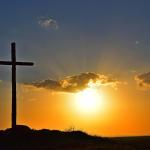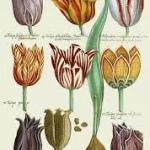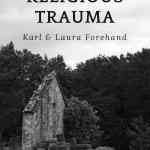 First things first, let me just say that I hope you all have a wonderful honeymoon! And may God grant you many years!
First things first, let me just say that I hope you all have a wonderful honeymoon! And may God grant you many years!
You are preparing for the HONEYMOON, yes?
Remember?
June 23rd is what’s known as Midsummer Night’s Eve. It’s also called St John’s Eve. It is the eve of the Feast of the Nativity of St John the Baptist, June 24th.
St John the Baptist, Scripture tells us, lived in the Wilderness where he subsisted on a diet of locust and honey. St John is, therefore, the patron of beekeepers. It’s around the time that we celebrate St John’s Birthday, June 24th, that the hives are full of honey.
And the full moon that occurs after Midsummer’s Eve & St John’s Nativity is called the Mead Moon, because honey was fermented to make mead. It is also called the HONEY MOON. [In 2009, this full moon occurs the first full week of July.]
It’s a time for lovers. An old Swedish proverb says, “Midsummer Night is not long but it sets many cradles rocking.” Midsummer dew was said to have special healing powers. Women washed their faces in it to make themselves beautiful and young.
Here’s a sixteenth century definition of HONEYMOON: The first month after marriage, when there is nothing but tenderness and pleasure … originally having no reference to the period of a month, but comparing the mutual affection of newly-married persons to the changing moon which is no sooner full than it begins to wane; now, usually, the holiday spent together by a newly-married couple, before settling down at home.
According to some sources, the HONEYMOON is a relic of marriage by capture, based on the practice of the husband going into hiding with his wife to avoid reprisals from her relatives, with the intention that the woman would be pregnant by the end of the month.
As a woman’s cycle runs much like that of the moon, the time to conceive a child was between the time of marriage (or capture) and the HONEY MOON.
It has also been said that the origins of this word date back to the times of Babylon. In order to increase the virility and fertility of the newly-weds, the father of the bride would provide his son-in-law with all the mead (the fermented honey-based drink) he could drink during the first month of the marriage (and, therefore, moon).
The custom of drinking mead after a wedding for a month was also a medieval custom.
Other possible explanations of the word HONEYMOON have to do with the date that weddings traditionally took place. Weddings commonly took place during this time of year for practical reason. That is, it was the time between the planting season and the harvesting season. As it was also this time of year that honey was harvested … again we have the HONEYMOON.
In many parts of Europe it was traditional to supply a newly married couple with enough honey drink — mead — to last a month, ensuring happiness and fertility. From this practice we get HONEYMOON.
[It is about this time in this post when some are wondering what in the world all this has to do with anything – even more so, Orthodoxy!]
Friends, the connection is the Forerunner of the God-Man, John the Baptist.
Granted, we don’t normally think of John the Baptist when we think of HONEYMOON. In fact, we probably don’t think of the Forerunner in any other way than somber, austere, severe.
John the Baptist never shows up on any of those Fantasy Dinner Guest Lists: like Elvis, Marilyn Monroe, Shakespeare, Plato, and Jesus.
First of all there’s the whole “Repent thing” and then there’s the menu … I mean, hello, only locusts and honey?
Forgive me.
The Feast day of the Birth of St John the Baptist is the oldest feast in both the Greek and Latin liturgies, set for June 24th. It is said that this may be the date of his birth. While many saint’s days are celebrated on the date of their death, Scripture relates that St John the Forerunner was “filled with the Holy Spirit even from his mother’s womb” — thus, his birth. Therefore we keep St John’s memory on his birthday.
Which brings me to St John’s parents, Zacharias & Elizabeth. They were old; the HONEYMOON was long ended.
They had reached that time in life where one sets affections toward things above, where the HONEYMOON is a distant memory, and preparations for the end of life have begun.
It may have even been that Elizabeth, as was custom upon reaching a certain age, was now dressing all in black — a realistic outlook, but also one of mourning.
As Thomas Howard related a while back in TOUCHSTONE magazine: “The twilight of one’s life, surely, ought to illumine one’s path toward the attitudes of which the saints speak: resignation, recollection, renunciation, detachment, silence, waiting, patience, withdrawal, simplicity, stillness … and contentedness.”
YET, Zacharias and Elizabeth found out in their old age that the were going to have a baby! Can you imagine? Long after the HONEYMOON, long after the so-called Child-Bearing Years, after years of disappointment and struggle, at a very advanced age — an Angel appeared to Zacharias and told him he was going to be a DADDY!
* * *
The story is told of a young novice who asked his Elder: “Master, why does God hide the number of our days? I mean, why is it that we cannot know when our end will come?”
And the Elder replied, “My son, if man knew the number of his days, he would do nothing – he would achieve nothing – there would be no struggle, no art, no progress, no growth … only sorrow. He would spend what days he does have in dread of that one day, his last.
* * *
Remember, Zacharias and Elizabeth were old, barren. Zacharias was serving one day in the temple …
And the whole multitude of the people were praying outside at the hour of incense. And there appeared to him an angel of the Lord standing on the right side of the altar of incense. And Zechari’ah was troubled when he saw him, and fear fell upon him. But the angel said to him, “Do not be afraid, Zechari’ah, for your prayer is heard, and your wife Elizabeth will bear you a son, and you shall call his name John. And you will have joy and gladness, and many will rejoice at his birth; for he will be great before the Lord, and he shall drink no wine nor strong drink, and he will be filled with the Holy Spirit, even from his mother’s womb. And he will turn many of the sons of Israel to the Lord their God, and he will go before him in the spirit and power of Eli’jah, to turn the hearts of the fathers to the children, and the disobedient to the wisdom of the just, to make ready for the Lord a people prepared.”
And Zechari’ah said to the angel, “How shall I know this? For I am an old man, and my wife is advanced in years.” And the angel answered him, “I am Gabriel, who stand in the presence of God; and I was sent to speak to you, and to bring you this good news. And behold, you will be silent and unable to speak until the day that these things come to pass, because you did not believe my words, which will be fulfilled in their time.”
And, we all know the story; at his birth, when Zacharias affirmed that his name was JOHN, his mouth was opened and his tongue loosed … and, filled with the Holy Spirit, Zacharias prophesied, saying, “Blessed be the Lord God of Israel, for he has visited and redeemed his people, And you, child, will be called the prophet of the Most High; for you will go before the Lord to prepare his ways.”
* If Zacharias and Elizabeth had known that they would have no children … would spend most of their days in barrenness … only to have a child in their old age … Would they still have married?
* If Zacharias and Elizabeth had known that at the innocent age of 18 months their only son would be hunted by murderers … Would they still have prayed to have a child?
* If Zacharias had foreseen that Elizabeth would have to flee with their only child to live in the desert … Would he have gone through it all?
* According to the tradition of the Church, Zacharias was notably silent on one other occasion. When Christ was born and Herod issued his infamous edict to slay all of the male children two years of age and under in Bethlehem and its surrounding areas, Elizabeth took John and fled into the wilderness. Zacharias stayed behind in the temple, and when Herod’s soldiers questioned him about his son’s whereabouts, he steadfastly remained silent, causing him to lose his life.
* If Zacharias and Elizabeth had foreseen that Zacharias would be murdered in the Temple by those searching for his child … Would they have done differently?
* Had Elizabeth and Zacharias known that their only son was to be beheaded at 30 years of age, thanks to the lustful thoughts of a wicked ruler … What would they have done?
Would Zacharias and Elizabeth have gone through it all?
I believe the answer, all things considered, is “Yes.” Because God chooses those who are faithful, His wonders to perform.
The image of the son of Zacharias and Elizabeth adorns most every iconostasis in every Orthodox temple throughout the world and all ages.
God works through all things with those who love Him.
With God’s love, unlike earthly moons, there is no waxing and waning – only our feeble understanding of great and awesome mysteries. It shall all be clearer at the wedding feast of the Lamb.
You know the Lamb … the one of whom John the Baptist says: “”Behold, the Lamb of God, who takes away the sin of the world!”
St John the Baptist, the fruit of faithful parents, Zacharias and Elizabeth — the Forerunner of the God-Man, Christ, the Saviour of the World.
Through the prayers of St John the Forerunner, may God have mercy on us and save us.
Oh, and again, let me just say that I hope you all have a wonderful HONEYMOON! And may God grant you many years!
Taken from an Orthodixie Podcast which aired on Ancient Faith Radio in June 2007.
Image Source











